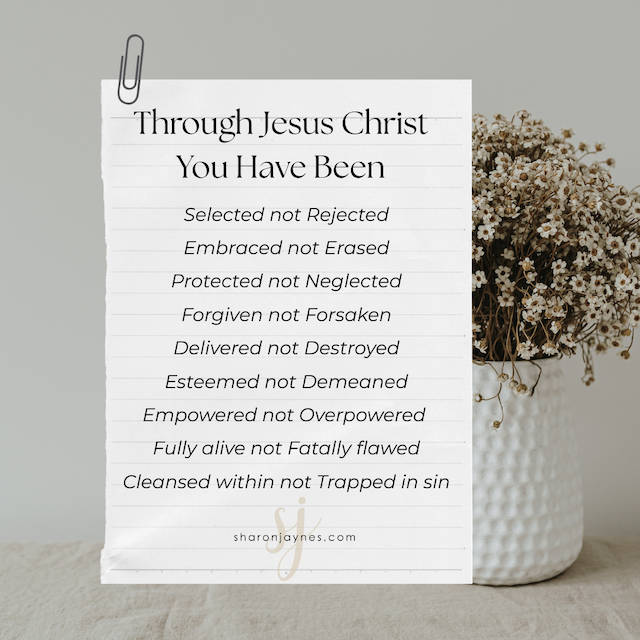When the threat of force sinks under its own weight (Exodus 14:15-31)

Open Exodus 14:15-31.
The Red Sea event proclaimed a definitive message: God made a way where there was no way — literally through the sea (14:21-23).
Even there, Egypt’s military power pursued them: “all Pharaoh’s horses and chariots and horsemen” (14:23). In ancient warfare, chariots were the equivalent of tanks: a protective, fast moving vehicle, able to outrun an enemy.
But the pathway God provided did not support chariots. They bogged down in the sandy sea floor. That’s when the Egyptians realized they were up against a foe they could not defeat: “Let’s get away from the Israelites! The Lord is fighting for them against Egypt.” (14:25).
When God’s people had passed through, Moses stretched out his hand again and the way through the sea closed. In this moment, the powerful chariots of Egypt’s mighty army become became junk on the sea floor.
Earth’s true ruler does have a way to release his world from the reign of evil and death. All the treacherous rulers and deadly weapons on earth cannot obstruct the purpose of the true sovereign, and his people.
The Red Sea event addresses the big justice question, “Can love defeat violence?” In YHWH versus Pharaoh, the power of love triumphs over the love of power.
The true ruler doesn’t need the power of an army to enforce his will. Nature itself responds to its true king. Even the sea. Even the uncontrolled places beyond human rule.
Love wins when the faithfulness of earth’s true sovereign combines with the trust of his people:
Exodus 14:29–31 (NIV)
29 The Israelites went through the sea on dry ground, with a wall of water on their right and on their left. 30 That day the Lord saved Israel from the hands of the Egyptians, and Israel saw the Egyptians lying dead on the shore. 31 And when the Israelites saw the mighty hand of the Lord displayed against the Egyptians, the people feared the Lord and put their trust in him and in Moses his servant.
The kingdom of God is a cooperative venture between the sovereign and his people. It’s a visible reality when the sovereign leads and his people give allegiance, trusting and following him.
The Book of Exodus is all about the kingdom of God. It’s the revelation of the faithful sovereign who frees his people from oppression under evil, into his reign. It was the first crucial step in the on-going narrative of God rescuing his world. That’s why it keeps turning up in the history of Israel and the New Testament all the way to the final book:
The account of the exodus … presents the single most re-interpreted event of the Hebrew Bible, defining many subsequent beliefs about the nature of God and the relationship between God and the Israelites. … The close connection between the account of the exodus and the creation of the world points emphatically to the significance of this stage. Just as God brought the whole world out of the chaos of the deep, so also the people of God have been brought out of the chaos of oppression into a new life.
— Paula Gooder, The Pentateuch: A Story of Beginnings, (London: T&T Clark International, 2005), 85.
When Israel was exiled to Babylon, Isaiah promised that God would again release his people from captivity. It was effectively a new exodus, bringing his people back under his own kingship. “The arm of the Lord” would again be revealed (as in Exodus 6:6; 15:16), and “the servant of the Lord” would restore his kingship. This anointed servant would personally bear the struggles and failures of God’s people, going down into death on their behalf, leading them out so the purposes of YHWH prospered in his hand (Isaiah 40–53).
The New Testament writers saw Jesus as that suffering servant, anointed to rescue God’s world from evil and death, back into his reign. What surprised many was how Jesus led the new exodus from oppression to kingdom. Our anointed king willingly gave himself as the servant of humanity. God raised him out of death, restoring the regal name he deserves, the name above all names. We who acknowledge that name are in him, the community sharing in the life of the king.
Jesus, Son of the heavenly sovereign, became the servant to lead the whole world in a new exodus from oppression under sin and death into the kingdom of God.
Exodus 14:31 is the culmination statement explaining the point of the exodus story. Perhaps we could rephrase it to make the point that what God achieved for Israel through Moses, he has now achieved for the whole world through Christ:
Rephrased Exodus 14:31
When God’s people saw the mighty hand of the covenant sovereign displayed against the rebellious rulers of this world, they recognized the covenant sovereign, giving their loyalty to him and to Jesus his servant/Son.
Seeking to understand Jesus in the terms he chose to describe himself: son of man (his identity), and kingdom of God (his mission). Riverview College Dean
View all posts by Allen Browne





